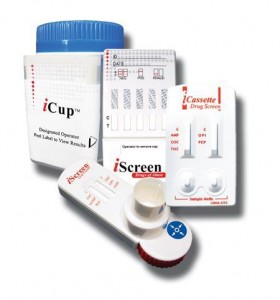Using Drug Tests in Residential Recovery Programs
 Certainly, drug testing is an important tool for managers of residential recovery programs. Dishonesty is one of the hallmarks of addiction. So, keeping those who have expressed a desire to change accountable is a good thing. But, is it possible to overdo it?
Certainly, drug testing is an important tool for managers of residential recovery programs. Dishonesty is one of the hallmarks of addiction. So, keeping those who have expressed a desire to change accountable is a good thing. But, is it possible to overdo it?
Another critical element of the recovery process is building trust between staff and clients. In a residential program where the level of daily interaction is so intense at times, this is doubly important. Programs really work in an effective manner when residents truly take ownership of their own personal recovery processes.
With these thoughts in mind, allow me to offer a few suggestions about ways to use drug testing most effectively in the residential setting.
A. Not the only means of maintaining a drug free program – While it is of utmost importance that a recovery program be kept “drug free,” it is especially cruel to use drug testing as a means of enforcing abstinence if there are no other active programs to support people in pursuit of a life of sobriety. Doing this is truly setting addicts up to fail. Testing can be most useful when there is an on-going program of recovery-oriented activities in place. Even then, drug testing should be a rare practice for the recovery program.
B. Generally, it is best conducted when there is a good reason to suspect that use of drugs or alcohol has occurred – There may be some situations where routine drug testing of every program resident should be conducted. One instance might be when a client returns from a weekend or longer period away from the program. However, over-testing can actually work against developing an atmosphere of trust among the staff and clients. If we are operating a program where there is a systematic monitoring of the clients’ progress, there will usually be indicators of problems before the actual use occurs. Relapse is a process — no one is working a solid program of recovery one day and drunk the next.
C. To maintain a commitment to “rigorous honesty” – An atmosphere of truthfulness is the most necessary ingredient for a successful addiction recovery program. The first requirement for entering into the program must be a sincere desire to become free of mind-altering substances. This means that those who “get high” will be immediately expelled from the program. The knowledge that program participants who are suspected of using them will be tested is an “insurance policy” that lets all involved know that they will be held to their word concerning a commitment to recovery. Those involved in the program with a sincere desire for a new life can be reassured that their efforts toward recovery will not be undermined by disruptive, uncommitted, and dishonest people, whose use of drugs or alcohol will be discovered.
D. To provide predictable consequences for using – Consequences are the addict’s salvation! In other words, people continue to abuse alcohol and drugs as long as they feel the benefits outweigh the costs. It must be clearly understood by all who enter the recovery program that any use of alcohol or drugs results in expulsion from the program. They must also understand that this consequence is applied equally to all program participants — no exceptions. This could be followed by a demotion to “transient” status or referral to another facility. Usually, after 30 days, the client can be reassessed for reentry to the program. The consistent application of this policy will actually promote a commitment to sobriety among program participants. If it is not followed through with consistently, staff members will be accused of favoritism or the program participants will assume that the staff does not take the use of alcohol and drugs seriously. The worst possible situation is to give them the impression that everyone has at least one drunk “in the bank.” We can be assured that they will use it!
Comments are closed.



